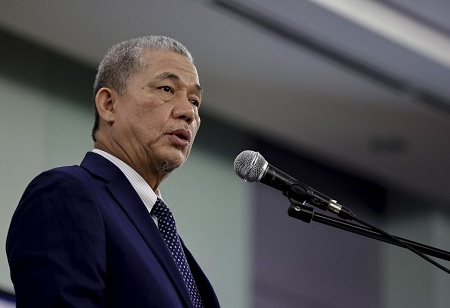
Malaysia Tops In Public-Private Partnerships in APEC for Sustainable Energy

 Malaysia has called for enhanced public-private partnerships (PPPs) within the Asia Pacific Economic Cooperation (APEC) region to speed up energy transitions while ensuring inclusivity and sustainability, according to Deputy Prime Minister Datuk Seri Fadillah Yusof. Speaking at the 14th APEC Energy Ministers’ Meeting (EMM14), Fadillah stressed the importance of supportive regulatory frameworks and ecosystems, bolstered by research and development, as key to advancing clean energy solutions across APEC member economies. He underscored that PPPs are vital for mobilizing the resources, expertise, and innovation necessary for the energy transition.
Malaysia has called for enhanced public-private partnerships (PPPs) within the Asia Pacific Economic Cooperation (APEC) region to speed up energy transitions while ensuring inclusivity and sustainability, according to Deputy Prime Minister Datuk Seri Fadillah Yusof. Speaking at the 14th APEC Energy Ministers’ Meeting (EMM14), Fadillah stressed the importance of supportive regulatory frameworks and ecosystems, bolstered by research and development, as key to advancing clean energy solutions across APEC member economies. He underscored that PPPs are vital for mobilizing the resources, expertise, and innovation necessary for the energy transition.
Fadillah pointed to Malaysia’s successful PPP models as examples for other APEC members. He cited the Net Energy Metering (NEM) program, particularly its NEM 3.0 expansion, which enables consumers to generate electricity via solar photovoltaic installations. Additionally, Malaysia’s large-scale Solar (LSS) program, driven by competitive bidding, has attracted significant private sector investment, expanded renewable energy capacity, created jobs, and stimulated local economies.
He also highlighted the importance of Renewable Energy Certificates and Self-Consumption programs, which enable consumers and businesses to actively support Malaysia's goal of increasing renewable energy in its power mix. Additionally, the recent introduction of the Corporate Renewable Energy Supply Scheme represents a major advancement, allowing third-party access to the national electricity grid and encouraging competition among green energy developers. “This move aligns with our goal of increasing renewable energy composition to 70 percent of total generation capacity by 2050”, Fadillah stated.
He further emphasized the need for a holistic approach to energy transition, one that integrates sustainability, inclusivity, and justice. The National Energy Transition Roadmap (NETR), unveiled in July 2023, provides a blueprint for ensuring a fair and equitable shift toward renewable energy sources. This roadmap outlines guiding principles and initiatives designed to ensure that all segments of society benefit from the energy transition.
Fadillah also noted Malaysia’s exploration of innovations in energy storage and grid management technologies, such as hydrogen as a clean energy carrier and advanced battery technologies, to support renewable energy integration and ensure energy security. “To facilitate knowledge transfer and capacity building of best practices, Malaysia is pursuing a multifaceted approach through cross-sectoral cooperation, regional collaboration, and capacity-building initiatives”, he added.

